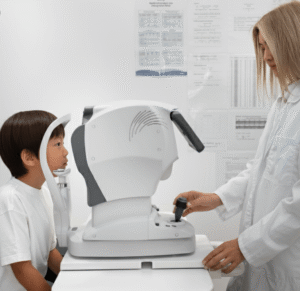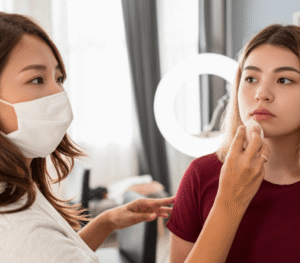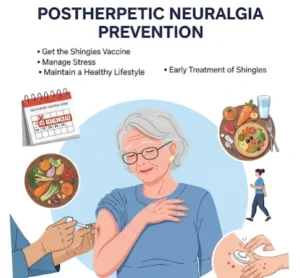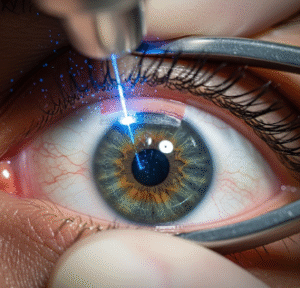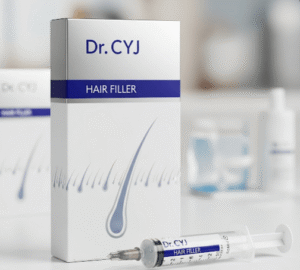Overview
Low sex drive, medically referred to as loss of libido, is a reduction or absence of sexual desire in both men and women. It is a common concern that can affect relationships, self-esteem, and overall quality of life. Libido is influenced by hormonal, psychological, physical, and lifestyle factors, and changes may be temporary or chronic.
In Korea, urology, gynecology, endocrinology, and mental health clinics offer comprehensive evaluation and treatment for low libido. Identifying the underlying cause is crucial because effective treatment depends on addressing hormonal imbalances, psychological issues, medical conditions, or lifestyle factors.
Key Facts
- ➔ Low sex drive is more common in women, but it also affects men.
- ➔ Causes can be physical, hormonal, psychological, or relational.
- ➔ It can occur gradually over time or suddenly due to stress, illness, or medication.
- ➔ Untreated low libido may lead to relationship difficulties, frustration, or emotional distress.
- ➔ In Korea, specialized clinics provide integrated care, combining medical treatment, counseling, and lifestyle interventions.
What is Low Sex Drive (Loss of Libido)?
Low libido is defined as a reduced desire for sexual activity:
- ➔ Sexual desire vs. sexual performance: Libido refers to interest or desire, which may be affected even if sexual function is normal
- ➔ Symptoms: Lack of sexual thoughts, decreased frequency of sexual activity, or reduced enjoyment of intimacy
- ➔ Clinical significance: Persistent low libido can indicate hormonal imbalances, psychological disorders, chronic illness, or relationship issues
- ➔ Types:
- Hypoactive sexual desire disorder (HSDD) – clinically diagnosed low libido
- Situational or transient loss of desire related to stress, fatigue, or medications
What Symptoms Are Related To
Low sex drive may be accompanied by other signs:
- ➔ Reduced sexual thoughts or fantasies
- ➔ Decreased frequency or avoidance of sexual activity
- ➔ Difficulty becoming aroused or experiencing pleasure
- ➔ Fatigue or low energy
- ➔ Mood disturbances: Depression, anxiety, irritability, or stress
- ➔ Relationship issues: Reduced intimacy, conflicts, or dissatisfaction
- ➔ Associated hormonal symptoms: Hot flashes, erectile difficulties in men, or menstrual irregularities in women
These related symptoms help determine whether the cause is physical, psychological, or both.
What Causes / Possible Causes
Low sex drive can result from a combination of hormonal, psychological, medical, and lifestyle factors:
- ➔ Hormonal causes: Low testosterone in men, low estrogen or progesterone in women, thyroid disorders, adrenal insufficiency
- ➔ Psychological causes: Stress, anxiety, depression, body image issues, past trauma
- ➔ Medical conditions: Diabetes, cardiovascular disease, chronic pain, obesity, or neurological disorders
- ➔ Medications: Antidepressants (SSRIs), antihypertensives, hormonal therapy, or chemotherapy
- ➔ Lifestyle factors: Lack of sleep, alcohol or substance abuse, poor diet, or sedentary habits
- ➔ Relationship issues: Communication problems, unresolved conflicts, or emotional disconnect
Understanding the cause is critical for targeted and effective treatment.
When Should I See My Doctor
Consult a healthcare provider if:
- ➔ Low sex drive persists for several months and affects quality of life
- ➔ Accompanied by physical symptoms such as erectile dysfunction, vaginal dryness, or hormonal changes
- ➔ Associated with mood disturbances like depression or anxiety
- ➔ Occurs suddenly after starting a new medication or medical condition
- ➔ Interferes with intimate relationships or emotional well-being
Early consultation ensures proper diagnosis, appropriate treatment, and improved sexual health.
Care and Treatment
Management of low libido depends on the underlying cause:
- ➔ Hormonal therapy: Testosterone supplementation for men, estrogen/progesterone therapy for women, thyroid hormone correction
- ➔ Psychological counseling: Cognitive-behavioral therapy, sex therapy, stress management, or couples counseling
- ➔ Lifestyle modifications: Regular exercise, balanced diet, adequate sleep, and reduction of alcohol or substance use
- ➔ Medication review: Adjusting or changing medications that reduce libido
- ➔ Medical treatment for underlying conditions: Diabetes, cardiovascular disease, or chronic pain management
- ➔ Relationship-focused interventions: Improving communication, intimacy, and emotional connection
- ➔ Regular monitoring: Follow-up to assess effectiveness of treatment and adjust therapy as needed
With comprehensive care, libido can often be restored, improving overall sexual health and relationship satisfaction.
Treatment Options in Korea
Korean hospitals and clinics provide specialized, integrated care for low sex drive:
- ➔ Diagnostic evaluations: Hormonal panels, thyroid tests, psychological assessments, and lifestyle evaluation
- ➔ Specialist consultations: Urologists, gynecologists, endocrinologists, and mental health professionals
- ➔ Medical therapy: Hormonal replacement, medication adjustment, or treatment of underlying medical conditions
- ➔ Psychological support: Counseling and sex therapy programs tailored to the patient’s needs
- ➔ Lifestyle guidance: Nutrition, exercise, and sleep optimization
- ➔ Multidisciplinary approach: Ensuring a holistic treatment plan for physical, psychological, and relational factors
- ➔ Leading hospitals: Seoul National University Hospital, Asan Medical Center, and Samsung Medical Center provide state-of-the-art diagnostics, therapy, and follow-up care
In Summary: Low sex drive is a multifactorial condition that can affect men and women, impacting quality of life, relationships, and emotional well-being. Timely evaluation and treatment in Korea can address underlying causes, restore libido, and improve overall health.
- ➔ Key Takeaway: Persistent low libido warrants medical evaluation to identify hormonal, psychological, or lifestyle-related causes.
- ➔ Action Point: Consult specialists for comprehensive care including medical treatment, counseling, and lifestyle interventions.




